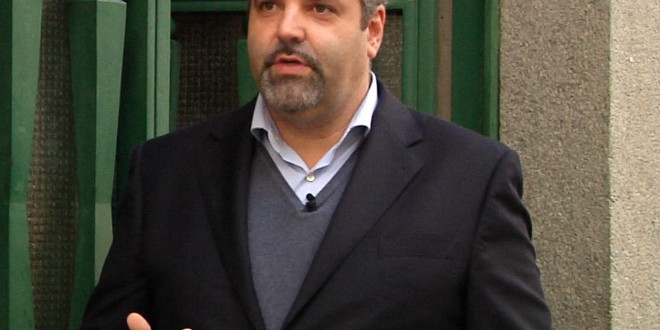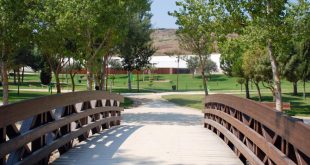President of Monchique municipal council:
ECO123: How can we create a Portugal without forest fires?
Rui André: In Monchique, there have been a number of fires, but the strategy of a very powerful initial attack has enabled almost all of them to be put out right at the start. Given the vulnerability of the region, we see these results as being very positive, but we have also been quite lucky. In other places, and with the same strategy, unfortunately this year there have been fires like the ones here in 2003. There’s a lot of work ahead of us.
There are three essential pillars in the management of forest fires – prevention, vigilance and combat. In terms of combat, I think that what we have is, for the moment, sufficient. In terms of vigilance, the municipality of Monchique has been a pioneer in aspects such as agreements with the army, and hunting clubs, or the fixed observation posts. In terms of prevention, there is still a lot that can be done, including involving people more and the landowners.
Many years ago, there were no fires like this, both because of the way nature was organised and because of the different species that grew here. Species such as the strawberry tree developed in gaps in the forest and were less flammable. EU funds have encouraged the spread of eucalyptus throughout the region. This monoculture means that we live in a context of high risk and constant danger.
ECO123:What is your position on the new “Eucalyptus Law”?
Eucalyptus should be regarded as much more than just a source of wood. In Monchique, 30 years ago, it supplied the aromatic oils industry. Nowadays, this potential is no longer exploited. There is a lack of support for small owners and producers. The first ones dissociated themselves from the forest and abandoned their plots – and the cellulose industry buys them, rents them or takes care of them. And, to be frank, the management of these companies concerns me more and more…
Since 1960, Monchique has lost more than half its population. How can a municipal council support and stimulate the return of people?
The council must be an economic player, a driving force. “Medronho” brandy, cured meats and honey are important nowadays for the local economy. For this reason, Monchique – like the whole country – needs to know that, in terms of tourism, the Algarve is not just sun and sand but much more.
Let’s not discuss tourism, but rather agriculture, production and sales: planting indigenous trees, making olive oil, milling carob, creating products from cork and chestnut trees, cherries…
After ten years, a eucalyptus tree earns five euros. Before the fires, we used to sell some 80,000 “arrobas” (= 15 kilos) of cork in Monchique. At present we have 62 legalised “medronho” brandy distilleries. Planting strawberry trees creates wealth. Planting a chestnut tree too. After a few years, it yields a kilo of chestnut, which is worth three to four euros. We need to create networks of interests, where, for example, the restaurants do not go to the big supermarkets but rather buy potatoes and cabbages locally. Monchique in the future will not grow more with eucalyptus. One example: Monchique is very rich in mushrooms, which we need to use responsibly. Another: we are organising a land exchange, together with the Regional Agriculture Directorate, so that people looking for land can contact owners who don’t want to work it. What’s missing is a mediator who would be a guarantor that everything would run smoothly. We are talking about contracts to make the land pay, and if a young couple want to rent, it has to last 10 or 15 years. We have a rich region, it has to be lived in, participated in, shared… Creating networks changes the paradigm in the country.
 Eco123 Revista da Economia e Ecologia
Eco123 Revista da Economia e Ecologia


